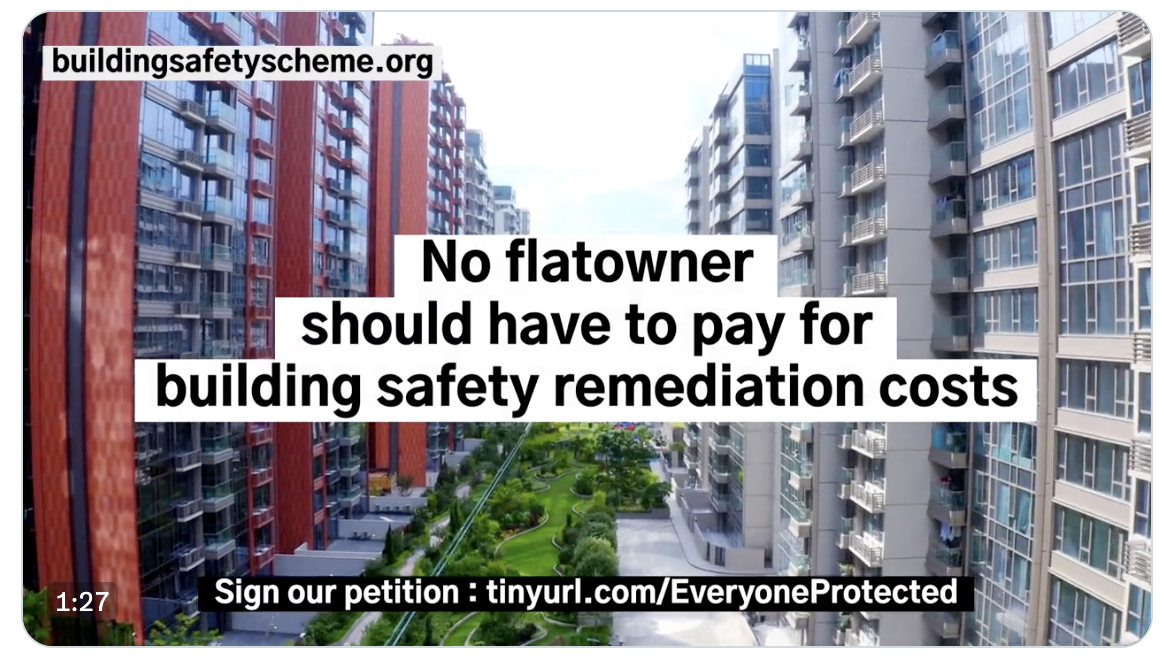Last Updated on: 22nd November 2023, 06:48 pm
Jeremy Hunt has issued a stark warning to the UK government, highlighting the potential multi-billion-pound cost of addressing the building safety crisis that has emerged post-Grenfell. The crisis revolves around the fact that the government’s leaseholder protection legislation, introduced last year in response to the Grenfell fire in 2017, does not cover three specific groups: low-rise flat residents, those who have enfranchised, and those who own more than three flats.
Without a corrective action, approximately 1.7 million homeowners remain in a state of uncertainty until all buildings are assessed for fire safety issues. The lack of clarity affects the entire flat market, as no one knows which buildings are affected. Those residing in unsafe buildings either find themselves with unsellable flats or must bear the financial burden of costly remediation for various building safety defects, including Grenfell-type cladding on low-rise blocks. This situation could lead them to live in potentially hazardous flats that urgently require safety improvements.
The government introduced partial leaseholder protections last year, offering protection to only a fraction of homeowners from exorbitant building safety remediation costs. This has resulted in a problematic three-tier flat market: those who are fully protected, partially protected, and not protected at all. This complexity is causing challenges for conveyancers trying to obtain professional indemnity insurance, as they must analyse complex information related to the seller’s and building owner’s status to determine a buyer’s potential liability. This situation risks a significant portion of conveyancers rejecting new flat-related instructions, potentially stalling a significant portion of the UK housing market.
The crisis could exacerbate next year when new banking rules come into effect. The Bank of England is set to outline its implementation of “Basel 3.1” standards in early 2025. These standards will require lenders to revalue loans if an event occurs that permanently reduces a property’s value. Given the current three-tier flat market created by legislation, widespread revaluations are likely. Leaseholders with partial or no protection could suffer, and banks that provided mortgages may face unrecoverable bad debts.
An amendment to the government’s bill, proposed by the Earl of Lytton, a crossbench peer, will be debated in the House of Lords to address this crisis. The amendment seeks to establish developer or lead contractor liability for building defects at the time of construction, with the option to recover from a broad building industry levy if the builder no longer exists. This amendment aims to fund the remediation of all unsafe flats, safeguarding the 1.7 million excluded homeowners and eliminating the three-tier flat market.
The amendment enjoys widespread support, including from 48,000 individuals, the National Residential Landlords Association, and Property Mark, representing 17,500 property agents. Ted Baillieu, former state premier of Victoria, Australia, and former co-chair of their cladding task force, also supports the amendment, stating that it has the potential to bring about permanent and positive change in the building industry.
If the amendment is rejected, the government will face a difficult choice between residential valuation write-downs and potential homelessness for many, with severe repercussions for the banking system. Alternatively, the government may need to intervene and bail out up to 1.7 million individuals while contending with the persistently problematic three-tier flat market.
For more information about the Earl of Lytton’s amendment, please visit www.buildingsafetyscheme.org.
To sign the petition, click here. You can watch a video from the petition’s founder, Jake, to find out more here.





